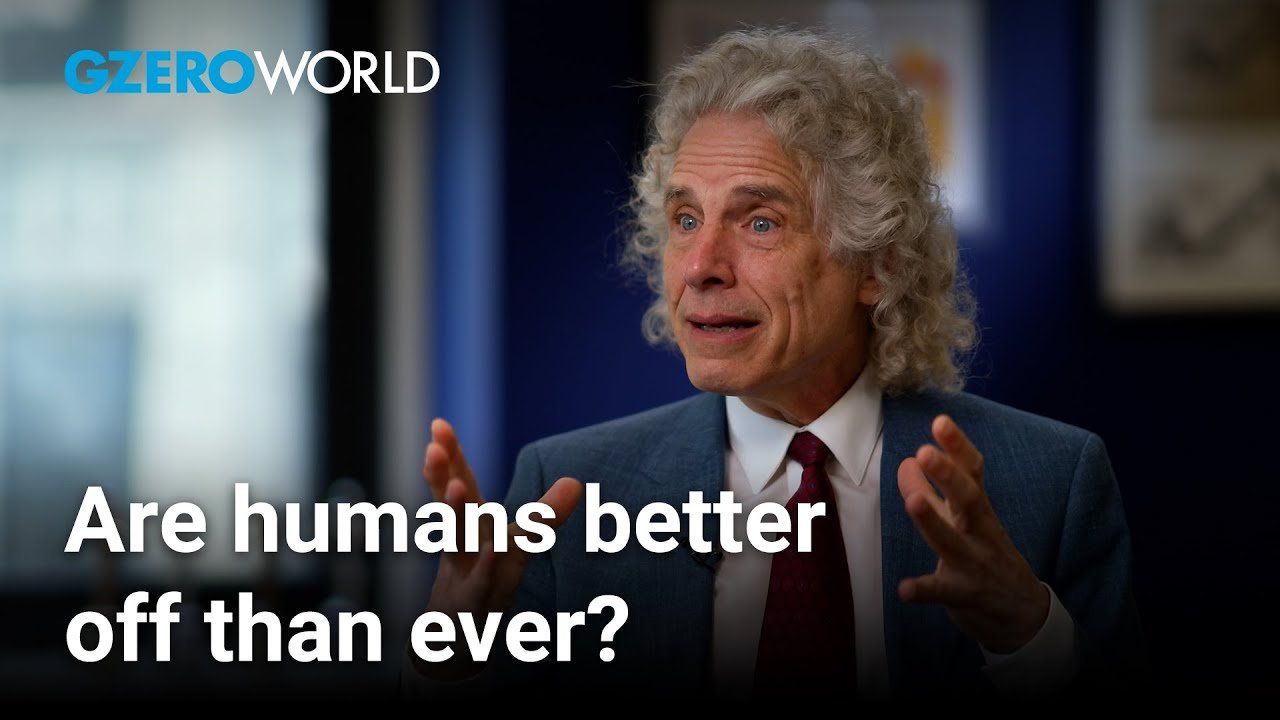GZERO World Clips
Steven Pinker shares his "relentless optimism" about human progress

Steven Pinker shares his "relentless optimism" about human progress | GZERO World

If you follow the news closely, chances are your view of the state of the world is not super optimistic. From war in Ukraine to a warming planet to global poverty and hunger, there's plenty to get upset about. But what if things are actually getting...better? That's what Harvard psychologist Steven Pinker asks in his interview with Ian Bremmer for the latest episode of GZERO World.
"If you compare the number of wars and the number of people killed in wars in the sixties and the seventies and even the eighties, we're actually much better off today" Pinker argues. "And so if you don't look at data, if you look at headlines, since as long as bad things haven't vanished from the face of the earth, which they never will, you can get the impression that things are unchanged or even are worse than ever, even when they're improving. It's only when you count the number of wars, number of deaths in war, longevity, child mortality, extreme poverty, number of leisure hours, that you see that there actually has been improvement. "
100 million: The number of people expected to watch the Super Bowl halftime performance with Bad Bunny, the Puerto Rican superstar and newly minted Album of the Year winner at the Grammys.
Think you know what's going on around the world? Here's your chance to prove it.
An imminent US airstrike on iran is not only possible, it's probable.
Americans are moving less — and renting more. Cooling migration and rising vacancy rates, especially across the Sunbelt, have flattened rent growth and given renters new leverage. For many lower-income households, that relief is beginning to show up in discretionary spending. Explore what's changing in US housing by subscribing to Bank of America Institute.